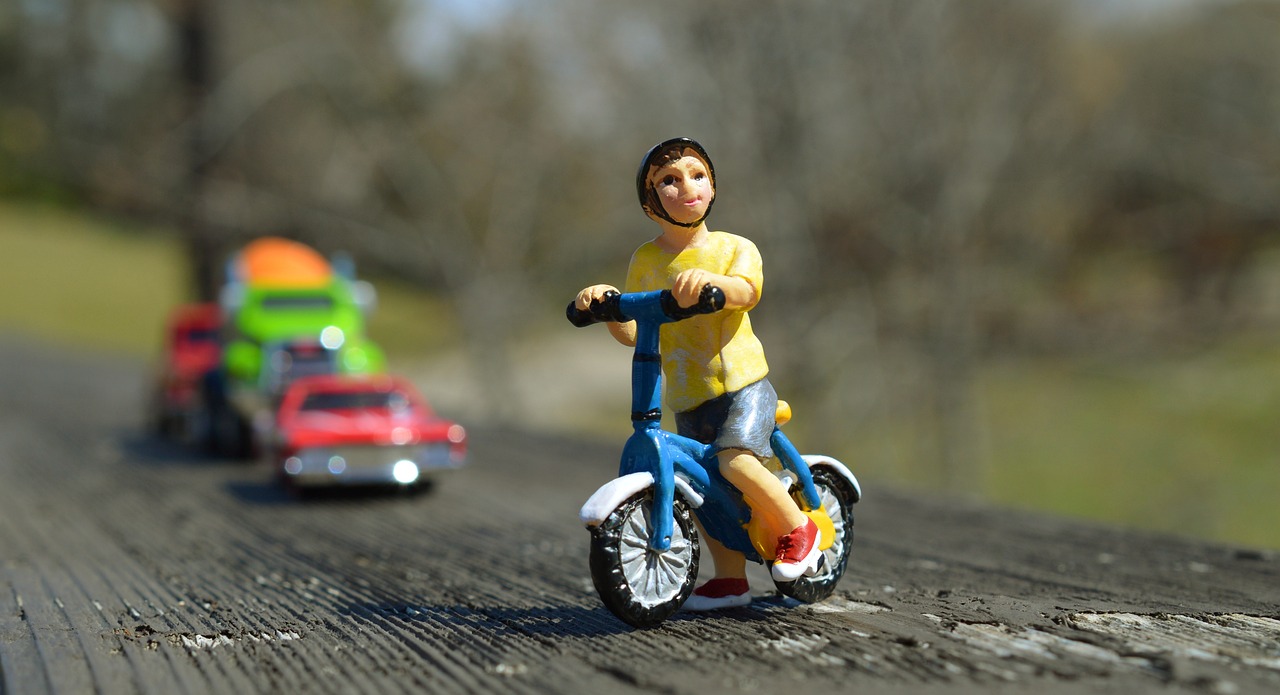Encouraging children with disabilities to engage in cycling activities not only promotes physical activity but also fosters a sense of inclusion, empowerment, and well-being. Accessible cycling opportunities provide children with disabilities the chance to explore their abilities, build confidence, and enjoy the freedom of movement that cycling offers. However, to ensure that cycling is truly accessible to all children, regardless of their abilities, it is essential to address various factors, including the availability of adaptive bicycles, supportive programs, community awareness, and collaborative efforts among professionals. In this discussion, we will explore the importance of providing cycling opportunities for children with disabilities and examine strategies to enhance accessibility, promote inclusion, and support the overall well-being of children with disabilities through cycling initiatives.
Enhancing Accessibility through Adaptive Bicycles
Providing cycling opportunities for children with disabilities is pivotal for promoting their physical activity and overall well-being. To make cycling more accessible, specialized adaptive bicycles tailored to various disabilities are essential. These bicycles feature modifications such as additional support for balance, adjustable seats, and safety harnesses to facilitate a safe and comfortable riding experience for children with disabilities.
Types of Adaptive Bicycles
- Tricycles: Provide greater stability and are ideal for children with balance issues. They often come with low step-through frames, making it easy for children to mount and dismount.
- Handcycles: Designed for children with limited or no use of their legs. These bikes are powered by hand pedals and can be customized for individual needs.
- Tandem Bikes: Allow a child to ride with a partner, such as a parent or caregiver, which can be reassuring for children who need guidance or support.
- Recumbent Bikes: Offer a reclined seating position, which can be more comfortable for children with certain physical conditions.
Supporting Organizations and Programs
Organizations like Variety – the Children’s Charity and The Adaptive Sports Foundation play a crucial role in facilitating cycling opportunities for children with disabilities. Through dedicated programs and resources, these organizations offer trained staff who can customize bikes to meet individual needs and provide guidance on safe riding practices. Inclusive cycling events organized by these entities promote social interaction and community engagement among children with disabilities.
Spotlight on Successful Programs
- Variety’s Bikes for Kids Program: Provides adaptive bikes to children who otherwise might not have access to specialized equipment. They partner with local businesses and community groups to fund and distribute these bikes.
- The Adaptive Sports Foundation’s Cycling Clinics: These clinics offer hands-on experience and training for both children and their families, helping them understand how to use adaptive bicycles effectively.
Raising Awareness and Education
Increasing awareness and education about the benefits of cycling for children with disabilities is essential for garnering support for inclusive initiatives. By dispelling misconceptions and highlighting the positive impact of cycling on physical and mental well-being, parents, caregivers, and the general public can become advocates for accessible cycling opportunities. Moreover, advocating for accessible infrastructure, such as inclusive bike paths and parks, further promotes inclusivity in cycling.
Strategies for Raising Awareness
- Community Workshops: Hosting workshops to educate communities about adaptive cycling can help dispel myths and demonstrate the value of these programs.
- Social Media Campaigns: Leveraging platforms like Facebook, Instagram, and Twitter to share success stories and testimonials can reach a broader audience and inspire change.
Collaboration among Professionals
Collaboration among healthcare professionals, therapists, and cycling experts is paramount in tailoring cycling experiences to meet the unique needs of children with disabilities. By working together, these professionals can develop individualized cycling plans, provide guidance on adaptive equipment selection, and monitor progress to ensure that cycling activities contribute positively to the child’s overall development.
Building a Collaborative Network
- Interdisciplinary Teams: Forming teams that include physical therapists, occupational therapists, and cycling instructors ensures a comprehensive approach to adaptive cycling.
- Regular Assessments: Conducting regular assessments to monitor the child’s progress and adjust equipment or strategies as needed.
- Training for Professionals: Offering specialized training for professionals involved in adaptive cycling can improve the quality and safety of the programs.
Providing Financial Support
Access to adaptive bicycles can sometimes be limited by financial constraints. Providing financial support or sponsorship programs for families of children with disabilities can alleviate the financial burden associated with purchasing adaptive bicycles. By making adaptive bicycles more accessible, more children with disabilities can enjoy the physical and recreational benefits of cycling.
Financial Assistance Options
- Grants and Scholarships: Many non-profit organizations offer grants specifically for purchasing adaptive sports equipment.
- Community Fundraisers: Organizing local events to raise funds for adaptive bikes can build community support and awareness.
Offering Peer Support and Mentoring
Peer support and mentoring programs can enhance the cycling experience for children with disabilities. Pairing them with peers who have similar disabilities or experiences can provide encouragement, motivation, and camaraderie during cycling activities. Peer mentors can offer guidance, share experiences, and serve as positive role models, fostering a sense of belonging and empowerment among children with disabilities.
Implementing Effective Mentoring Programs
- Matching Programs: Carefully matching children with mentors who have shared experiences to foster trust and understanding.
- Mentor Training: Providing training for mentors to equip them with the skills needed to support and encourage their mentees effectively.
Accessible Cycling Events and Workshops
Hosting accessible cycling events and workshops specifically tailored for children with disabilities can further promote their participation in cycling activities. These events provide opportunities for hands-on learning, skill development, and socialization in a supportive and inclusive environment. By organizing inclusive events, communities can celebrate diversity, raise awareness, and inspire more children with disabilities to engage in cycling.
Planning Successful Events
- Inclusivity Focus: Ensuring events are welcoming and accessible to all, with appropriate facilities and staff trained to support diverse needs.
- Family Involvement: Encouraging family participation to create a supportive atmosphere and enhance the child’s experience.
School-Based Cycling Programs
Implementing cycling programs within schools can encourage regular physical activity among children with disabilities. School-based programs can incorporate adapted bicycles into physical education curriculums, offering students with disabilities the chance to develop cycling skills alongside their peers. Additionally, these programs can promote inclusivity and acceptance among students, fostering a supportive and inclusive school environment.
Developing School-Based Initiatives
- Curriculum Integration: Working with educators to include adaptive cycling in the PE curriculum.
- Teacher Training: Offering professional development for teachers to learn how to effectively support students with disabilities in sports activities.
- Student-Led Initiatives: Encouraging students to take leadership roles in promoting inclusivity and supporting peers with disabilities.
Adaptive Cycling Equipment Loan Programs
Establishing adaptive cycling equipment loan programs allows children with disabilities and their families to access specialized bicycles without the financial burden of purchasing them outright. Through these programs, families can borrow adaptive bicycles for a designated period, enabling children to experience the joys of cycling while exploring their interests and abilities. Such initiatives promote equity and accessibility in recreational opportunities for children with disabilities.
Creating Successful Loan Programs
- Partnerships with Manufacturers: Collaborating with bike manufacturers to secure equipment for loan programs.
- Flexible Loan Terms: Offering flexible loan periods to accommodate the varying needs and schedules of families.
Community Partnerships and Sponsorships
Forging partnerships with local businesses, organizations, and community groups can enhance the availability of adaptive cycling opportunities for children with disabilities. Collaborating with sponsors can help secure funding for adaptive bicycles, equipment, and programs, making cycling more accessible to families who may face financial barriers. Community partnerships also foster a sense of belonging and support for children with disabilities, strengthening community ties and promoting inclusivity.
Building Strong Partnerships
- Local Business Engagement: Engaging local businesses to sponsor events or donate equipment.
- Non-Profit Collaborations: Partnering with non-profit organizations to pool resources and expertise.
- Corporate Sponsorship: Seeking corporate sponsorship to fund larger initiatives and expand program reach.
Research and Innovation in Adaptive Cycling Technology
Investing in research and innovation in adaptive cycling technology can lead to the development of advanced equipment and bicycles tailored to the specific needs of children with disabilities. By supporting research initiatives focused on adaptive cycling, advancements can be made in areas such as ergonomic design, safety features, and assistive technology integration. These innovations not only improve the cycling experience for children with disabilities but also drive progress in the field of adaptive recreation and accessibility.
Promoting Innovation and Research
- University Partnerships: Collaborating with universities to conduct research and develop new technologies.
- Innovation Grants: Providing grants to researchers and companies working on cutting-edge adaptive cycling solutions.
- User-Centered Design: Involving children and their families in the design process to ensure that new products meet their needs and preferences.
By taking these steps, we can make cycling a truly inclusive and empowering activity for all children, regardless of their abilities. With the right support, resources, and community involvement, children with disabilities can enjoy the many benefits that cycling offers, from improved physical health to increased confidence and social connection.




